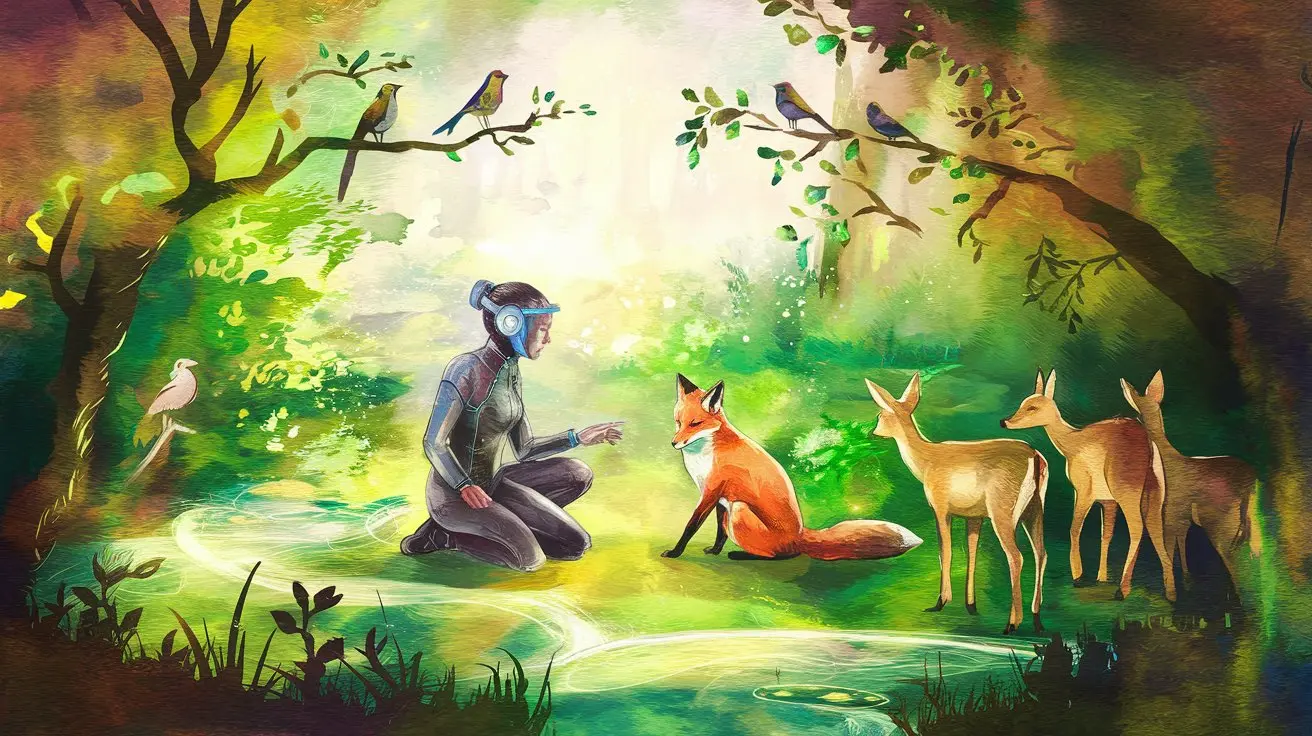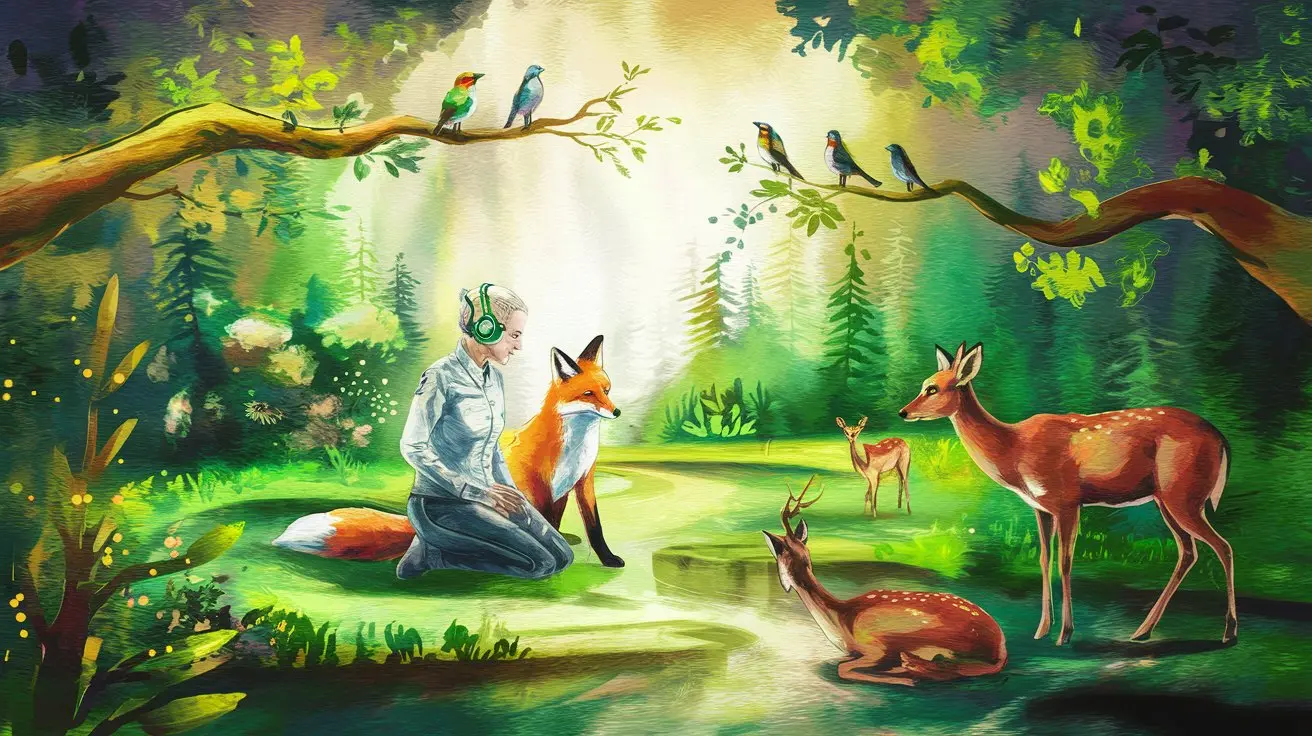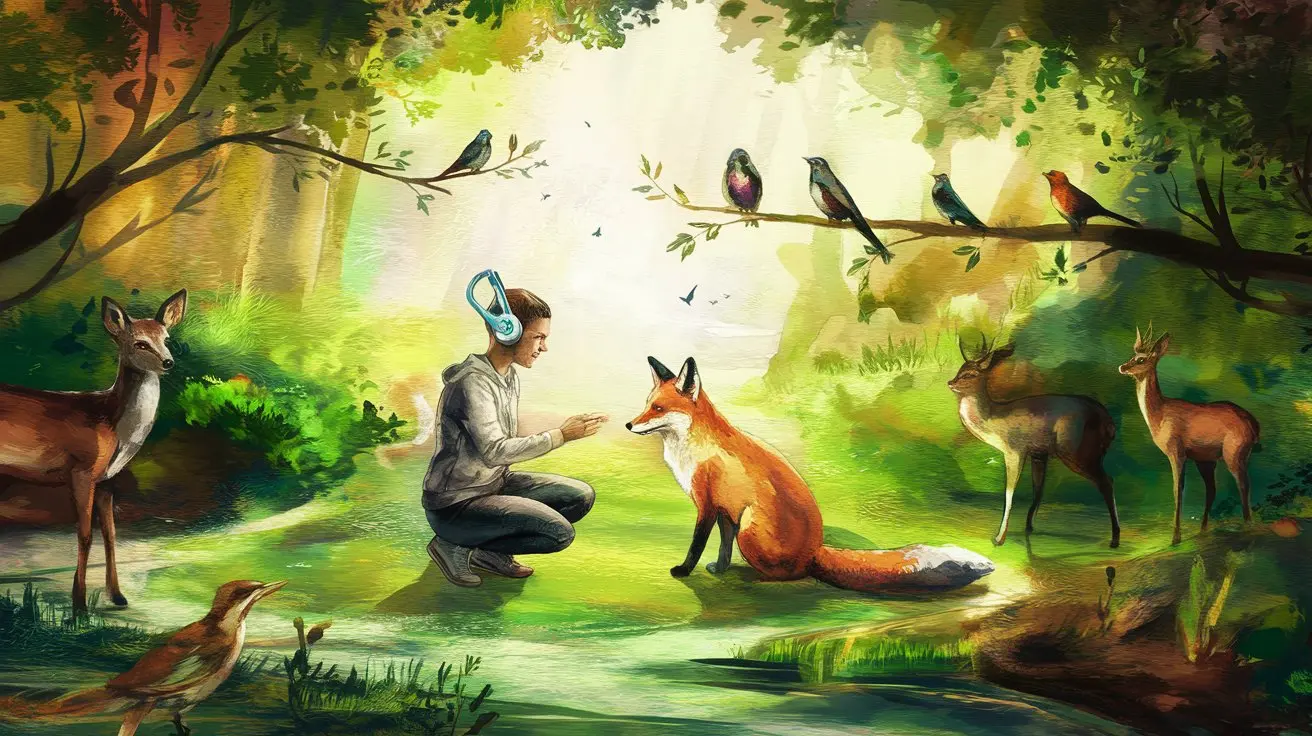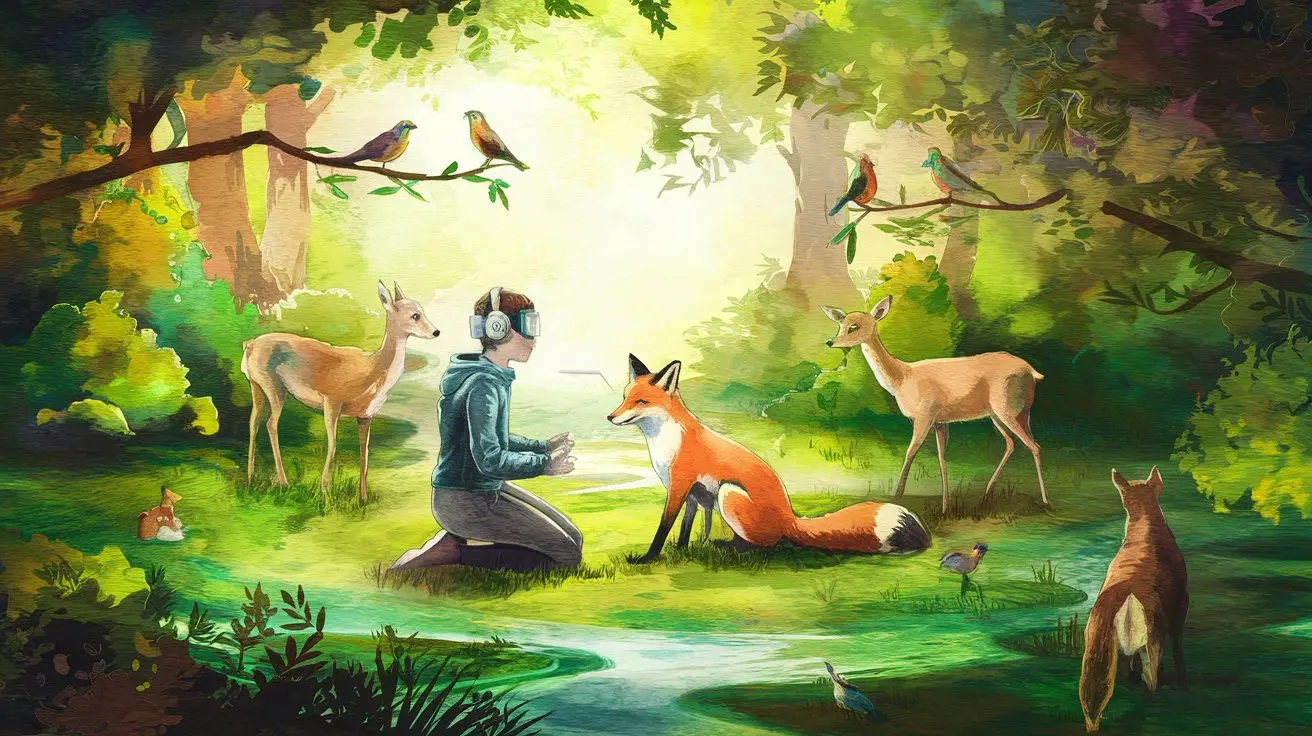Disclaimer: This is purely a hypothetical idea. While AI technology is advancing, we currently don’t have the tools to fully translate animal communication. However, exploring these possibilities helps us imagine a future where humans and animals coexist with greater understanding and harmony.
Wouldn't it be amazing to hear your dog say, "You’re my best friend"?
Imagine a world where humans could communicate directly with animals using advanced AI. With groundbreaking technology, we would no longer have to guess what a dog’s bark, a cat’s meow, or a bird’s song meant. Instead, an AI translator could interpret and convey their thoughts, emotions, and needs in a way we could understand.
How It Could Work
Advanced AI translation would rely on years of data collection and machine learning. By studying animal vocalizations, body language, and behavior, scientists and engineers could create algorithms to decode their "language." AI could use microphones, sensors, and cameras to collect data in real time, translating it into human speech or text.
For example:
- A dog might "say": "I’m hungry" or "I sense danger."
- A cat might communicate: "I’m comfortable" or "Leave me alone."
- A dolphin could explain: "This is how I navigate" or even share insights about underwater ecosystems.
Conversely, humans could use the AI to "speak" back to animals, using sounds or signals they understand. Imagine telling your dog, "I’ll be home soon," in their own "language"!
Possible Benefits
- Better Animal Welfare:
With clear communication, pet owners would understand their pets' needs and emotions better. No more guessing why a dog is barking or if a cat is in pain. This could lead to improved care for pets, farm animals, and even wildlife. - Stronger Human-Animal Bond:
Talking to animals would deepen our relationships with them. Pets could share their emotions, and we could reassure them in return. This mutual understanding would bring people and animals closer than ever. - Conservation Efforts:
Understanding wild animals could help us protect them. Scientists could "ask" endangered species what threats they face or how their habitats could be improved. Dolphins, elephants, and other intelligent creatures might provide vital insights into their ecosystems. - New Jobs and Opportunities:
AI translators could create careers like "animal communicators" or "wildlife interpreters." These experts might mediate between humans and animals in zoos, conservation projects, or even pet training. - Ethical Farming:
Farmers could understand what livestock need or how to improve their living conditions. Animals might communicate preferences that lead to more humane practices.
Challenges to Overcome
- Complex Animal Communication:
Animals might not "think" in words the way humans do. Their communication might be rooted in instincts, emotions, or sensations. Translating these into human language could be a massive challenge. - Ethical Concerns:
Would humans use this technology responsibly? Exploiting animals by manipulating their communication for profit or unethical experiments would raise serious moral questions. - Technology Accessibility:
Building and distributing this AI would require vast resources. Ensuring that it’s affordable and accessible to everyone—not just the wealthy—would be critical. - Language Misinterpretation:
Misunderstanding an animal’s intentions could lead to harm. For example, misinterpreting a wild animal’s warning as friendliness could put people in danger.
A World of New Possibilities
If we could communicate with animals, the world would change in unimaginable ways. Imagine walking in a forest, asking a bird for directions, or sitting in your garden, chatting with your cat about its day. Farmers might hear cows expressing gratitude for comfortable living conditions. Conservationists could learn directly from animals about the challenges of climate change.
But most importantly, this technology would remind us that animals aren’t just "creatures" living alongside us—they are individuals with their own thoughts, feelings, and perspectives. It would revolutionize how we see and treat the natural world.




What if we could communicate with animals using advanced AI translation?